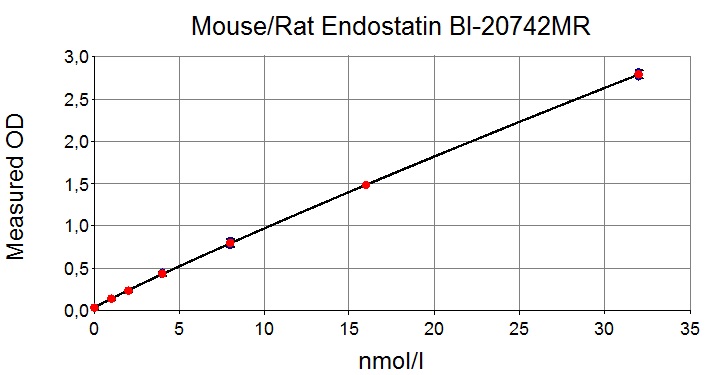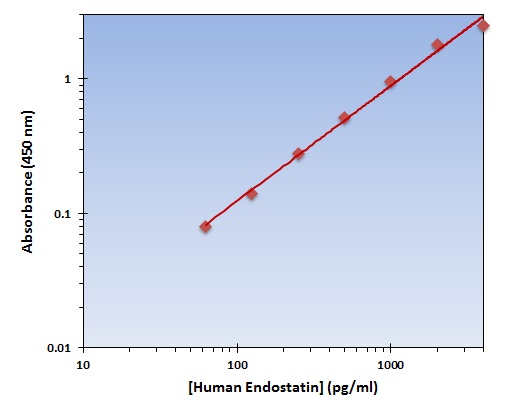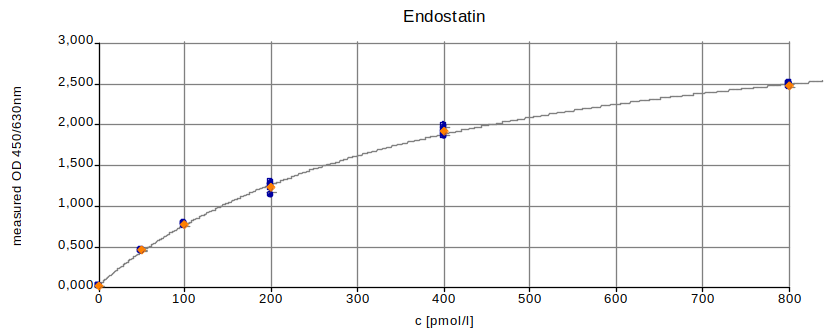
The figure shows a typical standard curve for the mouse Endostatin ELISA an rat Endostatin ELISA. The immunoassay is calibrated against recombinant Endostatin.
Endostatin mouse/rat ELISA
BI-20742MR
Assay Sample Typemouse/rat serum and plasma
Product group Assays
Overview
- SupplierBiomedica
- Product NameEndostatin mouse/rat ELISA
- Delivery Days Customer7
- ApplicationsELISA
- Applications SupplierELISA
- Assay Detection Range1-32 nmol/l
- Assay Precisionintra-assay: 9%, inter-assay: 10%
- Assay Sample Typemouse/rat serum and plasma
- Assay Sensitivity0.24 nmol/l
- Assay Test PrincipleSandwich ELISA
- Assay Time2.5h
- CertificationResearch Use Only
- Scientific DescriptionProduct Characteristics: The Biomedica mouse/rat Endostatin Sandwich ELISA kit is a quick day test that is intended for the quantitative measurement of Endostatin levels in mouse and rat serum and plasma samples and has been validated for pre-clinical research use. Target Information: Endostatin, a 20-kDa C-terminal proteolytic fragment of collagen XVIII, is an endogenous angiogenesis inhibitor localized in the vascular basement membrane in various organs. The biological functions of the endostatin-network involve SPARC, thrombospondin-1, glycosaminoglycans, collagens, and integrins. In animal studies, renal Endostatin expression preceded deteriorating kidney function and induced renal fibrosis in aging mice. In humans, Endostatin is expressed during the progression of renal fibrosis in tubular cells of injured tissue. In renal micro-vascular disease, observed in late stages of patients with chronic kidney disease, increased endostatin levels are possibly the consequence of enhanced extracellular matrix degradation. Thus endostatin may become an important marker for progressive microvascular renal disease in patients with chronic kidney disease. Endostatin levels in blood are also likely to increase in patients with other microvascular tissue injuries, including atherosclerosis, myocardial- and brain ischemia. In ischemic stroke patients, high endostatin plasma levels predict a worse long-term clinical outcome. In a cohort of critically ill patients, plasma endostatin improved AKI prediction based on clinical risk factors. Endostatin has evolved as a molecular target and is currently under investigation in clinical trials.
- Storage Instruction2-8°C
- UNSPSC41116133






